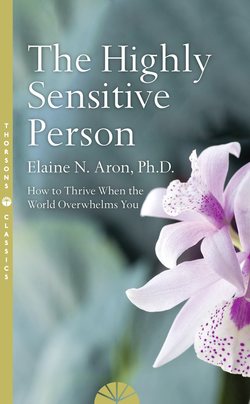Читать книгу The Highly Sensitive Person - Elaine N. Aron - Страница 50
Out Too Much, In Too Much
ОглавлениеJust as there are two kinds of problem caretakers—underprotective and overprotective—there are two general ways that HSPs fail to care properly for their bodies. You may push yourself out too much—overstimulate yourself with too much work, risk taking, or exploring. Or you may keep yourself in too much—overprotecting yourself when you really long to be out in the world like others.
By “too much,” I mean more than you would really like, more than feels good, more than your body can handle. Never mind what others have told you is “too much.” Some of you may be people who, at least for a period of your lives, truly belong in or out almost all the time. It feels right. Rather, I am referring to the situation where you sense you are overdoing it one way or the other and would like to change but cannot.
YOUR INFANT/BODY’S FIRST CARETAKER
AND THE ONE WHO CARES FOR IT NOW
Thinking about what you know about your first two years, make a list of the sorts of words or phrases that your parents might have used to describe you as a baby. Or you can ask them. Some examples:
A joy. Fussy. Difficult. No trouble. Never slept. Sickly. Angry. Easily tired. Smiled a lot. Difficult to feed. Beautiful. Can’t recall anything about your infancy. Walked early. Mostly reared by a series of caretakers. Rarely left with baby-sitters or at a child care center. Fearful. Shy. Happiest alone. Always into things.
Watch for the phrase that was almost your “middle name”—the one they would put on your gravestone if given half a chance. (Mine was “She never caused anybody any trouble.”) Watch for the phrases that stir up emotion, confusion, conflict in you. Or the phrases that seem too strongly emphasized, so much so that the opposite is even more true if you think about it. An example would be an asthmatic child being described as “no trouble.”
Now, think about the parallels between how your caretakers viewed your infant/body and how you do now. Which of their descriptions of you are really true for you? Which were really their worries and conflicts that you could shed now? For example, “sickly.” Do you still see yourself as sickly? Were you and are you now really more sickly than others? (If so, do learn the details of your childhood illnesses—your body remembers and deserves your sympathy.)
Or how about “walked early.” Are achievements and milestones how people earned attention in your family? If your body fails to achieve to your satisfaction, can you love it, anyway?
Furthermore, I do not mean to imply that those who were anxiously attached, with overprotective or inconsistent caretakers, are always overprotective of the infant/body self. Or that those with neglectful or abusive caretakers always neglect or abuse their infant/body self. It’s not that simple. First, our minds are such that we can as easily overreact or compensate and do the opposite. Or, more likely, we’ll swing back and forth between the two extremes or apply them in different areas of life (e.g., overdo at work, protect too much in intimate relationships; neglect mental health but overattend to physical health). Finally, you may have overcome all of this and be treating your body just fine.
On the other hand, you who were securely attached may be wondering why you are struggling with these same two extremes. But our circumstances, culture, subculture or work culture, friends, and our own other traits can all also make us go too far either way.
If you are unsure about which you do, review the box “Are You Too Out? Too In?”
